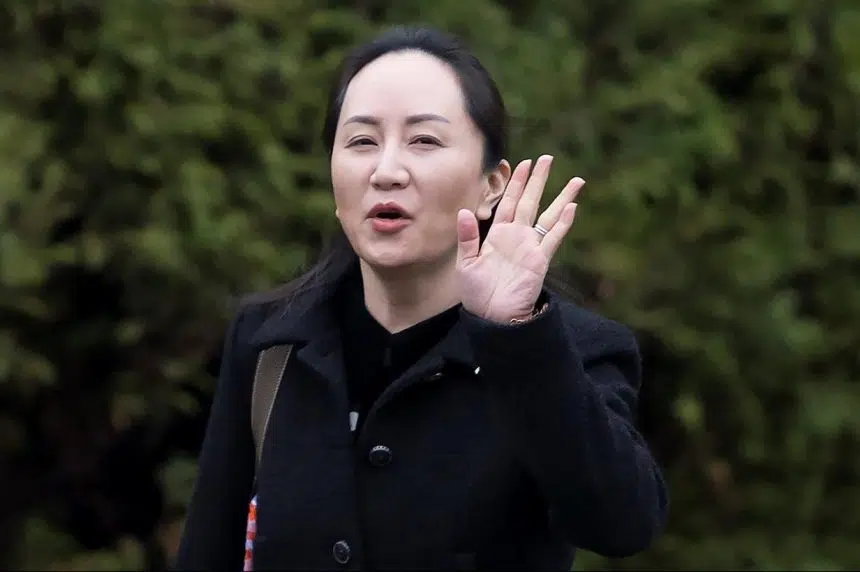VANCOUVER — A defence lawyer says fraud allegations against Huawei executive Meng Wanzhou are a “facade” and the charges are really about the United States attempting to enforce its sanctions against Iran.
A court hearing began Monday in Vancouver over the American request to extradite Meng on allegations she lied to HSBC about a Huawei subsidiary’s business in Iran, putting the bank at risk of violating U.S. sanctions.
At issue at this week’s hearing is the legal test of double criminality, meaning if the conduct she’s accused of would also be a crime in Canada then Meng should be extradited to face the accusations.
Her lawyer, Richard Peck, told a British Columbia Supreme Court judge that it’s a fiction that America has any interest in policing a foreign citizen or foreign bank, but it does have an interest in enforcing its sanctions.
Peck says the sanctions are the basis of the alleged fraud, since the bank wouldn’t have faced any economic risk if the penalties didn’t exist, and he notes Canada has refused to impose similar sanctions against Iran.
Lawyers for the attorney general have argued in court documents that Meng’s alleged misrepresentations put HSBC at risk of economic loss and are sufficient to make a case of fraud in Canada.
Peck disputed this argument by posing a question to the judge.
“Would we be here in the absence of U.S. sanctions law?” he asked. “In our respectful submission, the response is No.”
A decision to extradite Meng would undermine the double criminality rule and the values it protects, including the liberty of the person sought and Canada’s autonomy as a sovereign state, he said.
The start of the extradition hearing drew a large crowd of members of the public, supporters of Meng and international media. A courtroom with a capacity of 150 people quickly filled and an overflow room was set up.
Meng, who’s free on bail and living in one of her two multimillion-dollar homes in Vancouver, denies the allegations. She wore a black polka dot dress and took notes in court with the help of a Mandarin interpreter.
Her husband, Liu Xiaozong, listened in the courtroom gallery.
The case has severely strained relations between Canada and China. Beijing has detained two Canadians and restricted some imports including canola, moves that are widely seen as retaliation.
A spokesman for China’s Foreign Ministry said Monday that the United States and Canada abused their bilateral extradition treaty and arbitrarily took compulsory measures against a Chinese citizen without cause.
“This is entirely a serious political incident that grossly violates the legitimate rights and interests of the Chinese citizen,” said Geng Shuang, urging Canada to release Meng.
If the judge decides the legal test of double criminality has not been met, Meng will be free to leave Canada, though she’ll still have to stay out of America to avoid the charges.
If the judge finds there is double criminality, the hearing will proceed to a second phase.
That phase, scheduled for June, will consider defence allegations that Meng’s rights were violated during her arrest in December 2018 at Vancouver’s airport.
Laura Kane, The Canadian Press







